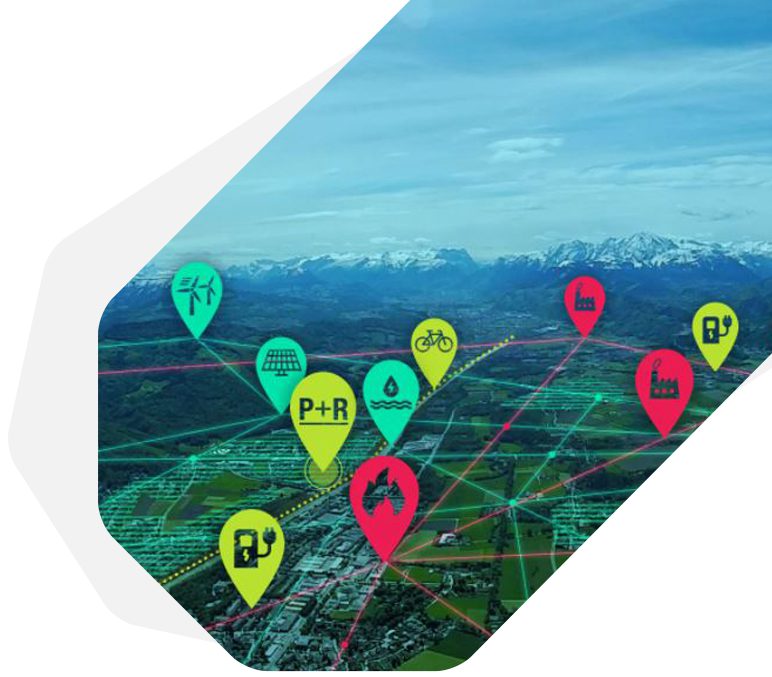

Energy space planning 2
Sustainable energy and climate future
Energy consumption is increasing worldwide and is responsible for a significant part of greenhouse gas emissions. It is therefore necessary to take measures to protect the climate, which means that well thought-out spatial energy planning is essential in order to meet the demand for energy in a sustainable manner.

What you should know
The innovation
Spatial energy planning is a part of spatial planning and deals with the spatial dimensions of energy production, distribution and use. Innovative spatial energy planning is the foundation for successful climate protection and contributes to achieving climate protection goals.
It is therefore essential for the energy system of the future to take account of the interdependencies between sectors such as heat, electricity and transport. Therefore, the focus of energy space planning 1 was on the heating area. The successfully developed and implemented processes for considering energy-related issues in the planning processes in the heating sector were extended to the electricity and transport sectors in spatial energy planning 2. Energy potential, such as consumption and generation, was also allocated in GIS (geo information systems) as part of energy spatial planning 2 . This means that all energy and climate protection-related sectors can be included in the strategic development.
The information system developed as part of energy space planning 1 is implemented in the respective communities and supplemented by findings from energy space planning 2. This creates specific tools such as automated reports and apps for the planning process, paving the way for the planning and implementation of plus-energy districts.





Energy space planning 2

Advantages
of innovation
We'll keep you up to date
Project status: "Ongoing"


We shape the future
Support from Next-Incubator
As a subsidiary of Energie Steiermark, the next-incubator has in-depth know-how in the field of energy efficiency. It is precisely with this expertise that the next-incubator accompanies the spatial planning 2 research project.

